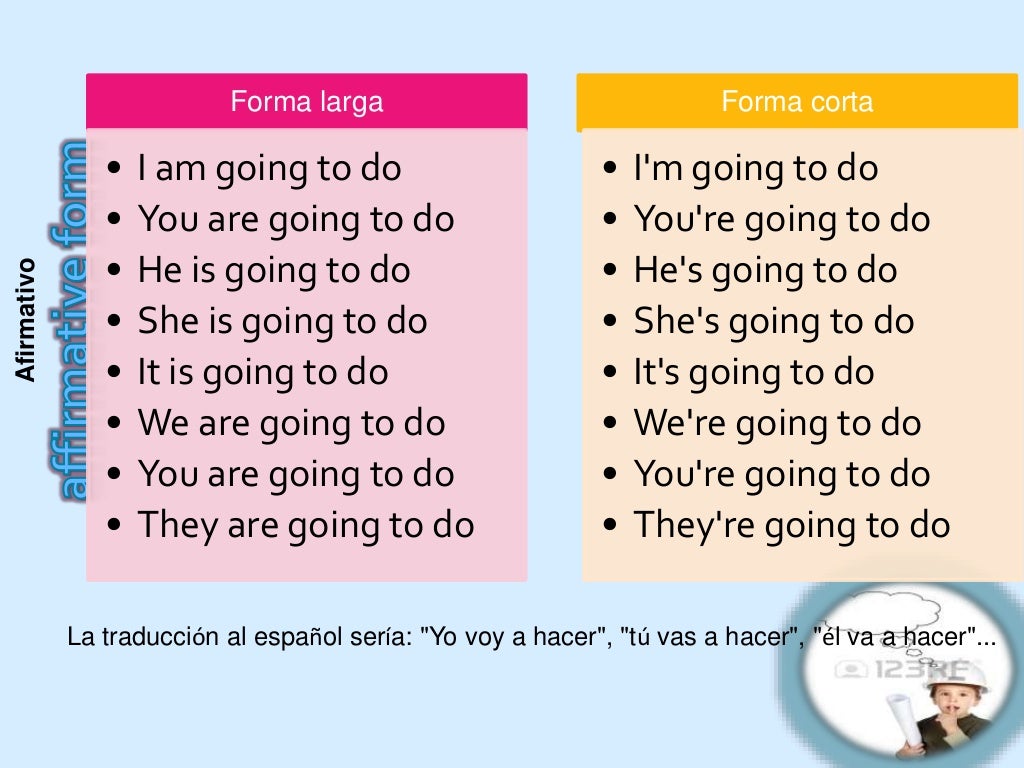GOING TO
Going to
Going to: present continuous
We use the present continuous form of the verb go + preposition to + noun phrase to talk about movement in relation to a place or a person in the present:
Are you going to Maggie’s party tonight?
I’m going to the shops. Do you want anything?
Ir a: presente continuo
Usamos la presente forma continua del verbo ir + preposición a + sintagma nominal para hablar de movimiento en relación con un lugar o una persona en el presente:
¿Vas a la fiesta de Maggie esta noche?
Voy a las tiendas. ¿Quieres algo? Going to: future
We can use a present form of be + going to + the base form of a main verb to talk about the future. We use it for plans and intentions, predictions and commands:
I’m going to buy a new car next week. (plan or intention)
You’re not going to do all this in an hour. There’s just too much to do. (prediction: the speaker can see how much there is to do)
I’m telling you, you’re going to do it. You don’t have a choice. (command)
Yendo al futuro
Podemos usar una forma presente de be + going to + la forma base de un verbo principal para hablar sobre el futuro. Lo usamos para planes e intenciones, predicciones y comandos:
Voy a comprar un auto nuevo la próxima semana. (plan o intención)
No vas a hacer todo esto en una hora. Hay demasiado para hacer. (predicción: el hablante puede ver cuánto hay que hacer)
Te lo digo, vas a hacerlo. No tienes elección. (mando) Was going to
We use a past form of be + going to when we talk about a plan we had that may have changed.
Compare
|
B definitely intends to stay out in the rain.
|
|
B intended to stay out but may have changed his mind.
|
Iba a
Usamos una forma pasada de be + going cuando hablamos de un plan que pudimos haber cambiado.
Comparar
UN:
No te vas a quedar afuera en esta lluvia, ¿verdad?
SEGUNDO:
Bueno, voy a hacerlo, sí.
B definitivamente tiene la intención de permanecer afuera bajo la lluvia.
UN:
No te vas a quedar afuera en esta lluvia, ¿verdad?
SEGUNDO:
Bueno, yo iba a hacerlo, sí.
B tiene la intención de permanecer fuera, pero puede haber cambiado de opinión.


Comentarios
Publicar un comentario